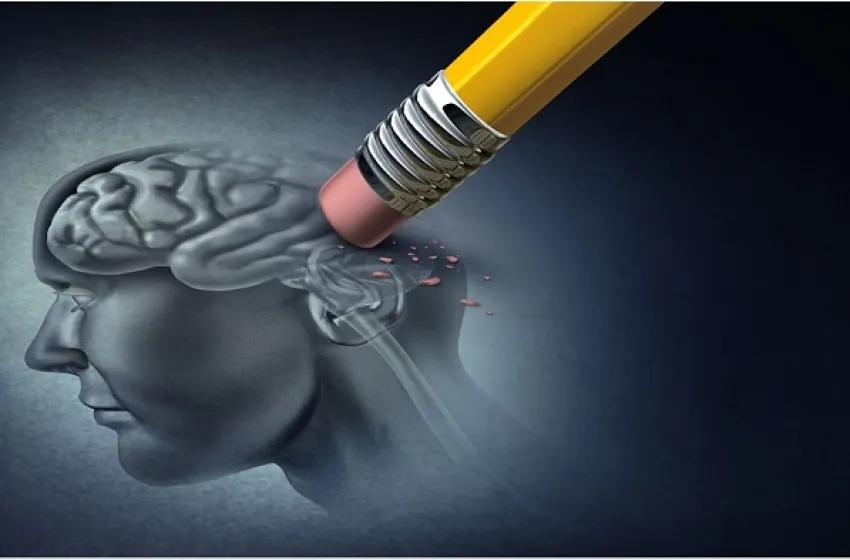Alzheimer's Disease - Definition, Risk Factors, Causes
Alzheimer's disease is the most common cause of dementia and is responsible for 60-80 percent of all cases of dementia.
Alzheimer's disease is the most common cause of dementia and is responsible for 60-80 percent of all cases of dementia. Dementia is a brain disorder that results in the loss of a person's intellectual and social abilities. This disease is classified as a progressive disease that interferes with a person's mental functions, such as memory and behavior.
Alzheimer's disease is highly associated with progressive disorders that cause brain cells to degenerate and die. It will result in a persistent deterioration in thinking, behavioral and social skills that interfere with a person's ability to function independently which is commonly associated with society's perception of 'senile pain'.
Alzheimer's Risk Factors
Some things that increase a person's risk of Alzheimer's include:
- Age over 60 years.
- Family history and genetics.
- Down syndrome.
- Women.
- Mild cognitive impairment.
- History of head trauma.
- Lifestyle and heart health.
- Obesity.
- Smoking.
- Dyslipidemia.
- Type 2 diabetes mellitus.
- Low level of education.
Causes of Alzheimer's Disease
Microscopic changes in the brain begin long before the first signs of memory loss. The brain has 100 billion nerve cells (neurons). Each nerve cell is connected to many other cells to form a communication network. Groups of nerve cells have a special job. Some are involved in thinking, learning, and remembering. Meanwhile, some others help us see and hear.
To do their job, brain cells operate like small factories. They receive supplies, generate energy, build equipment, and dispose of waste. Cells also process and store information and communicate with other cells. Keeping everything running requires coordination as well as large amounts of fuel and oxygen.
Experts believe that Alzheimer's disease disrupts parts of the cell factory, so it does not work properly. These scientists aren't sure how this problem started, but like real factories, backups, and glitches in one system cause problems in other areas. As the damage spreads, the cells lose the ability to do their job and eventually die, causing irreversible changes in the brain.
Symptoms of Alzheimer's Disease
Alzheimer's is a progressive disease characterized by symptoms of dementia and will worsen over time, usually within years. In the early stages, the sufferer will experience a mild memory loss, so that it is often not noticed by both the sufferer and those closest to him. In advanced stages, the symptoms will worsen to the point that the sufferer is unable to communicate with others and respond to the surrounding environment.
Like other cells in the human body, brain cells will undergo changes throughout life. Decreased ability to think and remember something that happened is sometimes a normal aging process. However, severe memory loss accompanied by confusion and other major changes in a person's way of thinking can be signs of brain cell damage.
The first symptom that sufferers may notice is a decrease in the ability to remember or learn new things. This condition is thought to be related to the development of Alzheimer's disease which at an early stage occurs in the brain regions responsible for the learning process. As Alzheimer's spread to a wider area of ??the brain, more severe symptoms then begin to appear, such as disorientation, changes in mood and behavior, confusion about recent events, as well as confusion in perception of time and place.
Other severe symptoms can be unfounded suspicions of family members, friends and nurses. At a later stage, symptoms can develop into very severe, to the point where the sufferer experiences serious memory loss, extreme behavioral changes, difficulty speaking, swallowing, and walking. Other extreme symptoms are insomnia, hallucinations, perceptual disturbances, apathy, depression, aggressive behavior, and excessive anxiety.
People with memory loss or experiencing other signs that may be symptoms of Alzheimer's may find it difficult to recognize they have the problem. The signs of dementia are more obvious to family members or friends. Anyone with dementia -like symptoms should see a doctor as soon as possible.
Diagnosis of Alzheimer's Disease
Unfortunately, there are no specific tests to confirm Alzheimer's disease. In general, the doctor will assess based on symptoms as well as some tests that can help confirm the diagnosis.
Physical and Neurological Examination
Dokter akan melakukan pemeriksaan fisik, dan kemungkinan akan memeriksa kesehatan neurologis secara keseluruhan dengan menguji:
- Refleks.
- Nada dan kekuatan otot.
- Kemampuan untuk bangkit dari kursi dan berjalan melintasi ruangan.
- Indra penglihatan dan pendengaran.
- Koordinasi.
- Keseimbangan.
Tes laboratorium
Blood tests can help doctors rule out potential causes of memory loss and other confusion, such as thyroid disorders or vitamin deficiencies.
Mental Status and Neuropsychological Testing
Doctors can also perform brief mental status tests to assess memory and other thinking skills. In addition, doctors may suggest more extensive thinking and memory tests.
Brain Imaging
Brain images are now used primarily to show abnormalities that are seen to be associated with conditions other than Alzheimer's disease, such as stroke, trauma or tumors that can cause cognitive changes similar to the symptoms of dementia.
Brain Imaging Technology
- Magnetic resonance imaging (MRI). This method uses radio waves and strong magnetic fields to produce detailed images of the brain. MRI is used to rule out other conditions that may cause or add to cognitive symptoms. Not only that, MRI can also be used to assess whether shrinkage in areas of the brain involved in Alzheimer's disease has occurred.
- Computed Tomography (CT). CT scans produce cross-sectional images (slices) of the brain. It is currently used primarily to get rid of tumors, strokes and head injuries.
- Positron Emission Tomography (PET). During the PET scan, a low -level radioactive tracer will be injected into the blood vessel. Trackers are special forms of glucose (sugar) that indicate overall activity in various brain regions. This can show which part of the brain is not functioning properly. The new PET technique is able to detect levels of brain plaque (amyloid) and tangles (tau), two characteristic disorders associated with Alzheimer's. However, these new PET techniques are commonly found in research settings or in a clinical trial.
- Cerebrospinal fluid. In special circumstances such as rapid progressive dementia or a very young onset of dementia, examination of cerebrospinal fluid may be performed. Fluid found in the spine can be tested to look for biomarkers that indicate the possibility of Alzheimer's disease.
Alzheimer's Disease Treatment
Therapy for Alzheimer's disease/ dementia involves several aspects, such as:
- Medications. Alzheimer's medications can currently help with memory symptoms and other cognitive changes. The current types of drugs used to treat cognitive symptoms, namely:
- Cholinesterase inhibitor.
- Memantine (Namenda).
- Anti-depressant drugs.
- Anti-anxiety medication
You can choose a variety of drugs through Halodoc, you can buy directly through the application.
- Creating a Safe and Supportive Environment. Adapting living situations to the needs of a person with Alzheimer's is an important part of any treatment plan. For someone with Alzheimer's, building and strengthening routine habits and minimizing memory -requiring tasks can make their life run much easier.
- Sports. Regular exercise is important for people with Alzheimer's, because it can improve mood and maintain healthy joints, muscles, and heart. Exercise can also help improve sleep quality and prevent constipation. Make sure sufferers wear name tags that contain addresses and numbers that can be contacted whenever sufferers go for a walk or exercise.
- Nutrition. People with Alzheimer's often forget to eat, lose interest in preparing food or do not want to eat healthy food combinations. They may also forget to drink enough, causing dehydration and constipation.
Try offering some of these options:
- High calorie and healthy shakes and smoothies. Milkshakes can be topped with protein powder or use a blender to make a smoothie featuring your favorite ingredients.
- Water, juices and other healthy drinks. Make sure that someone with Alzheimer's drinks at least a few glasses full of fluids each day. Avoid drinks with caffeine, which can increase anxiety, disturb sleep and trigger the need to urinate frequently.
Prevention of Alzheimer's Disease
Unfortunately to date, there is no proven way to prevent Alzheimer's disease. Research on prevention strategies is ongoing. The strongest evidence so far suggests that the risk of Alzheimer's disease can be lowered by reducing the risk of heart disease.
Many of the same factors that can increase the risk of heart disease can also increase the risk of Alzheimer's disease and vascular dementia. Important factors that may be involved include high blood pressure, high cholesterol, overweight, and diabetes.
The Mediterranean diet, which is a way of eating that emphasizes fresh products, healthy oils, and low -saturated fat foods, can reduce the risk of death from cardiovascular disease and stroke. This diet is also associated with a decreased risk of Alzheimer's disease. Staying physically, mentally, and socially active can also make life more enjoyable and can also help reduce the risk of Alzheimer's.
If the above methods of treatment and prevention do not work, you can immediately check yourself to the doctor you need in the hospital.
































